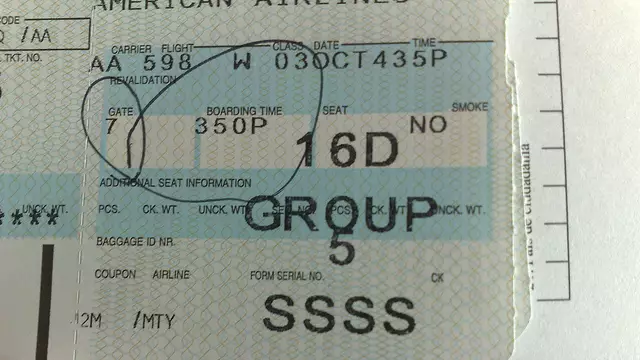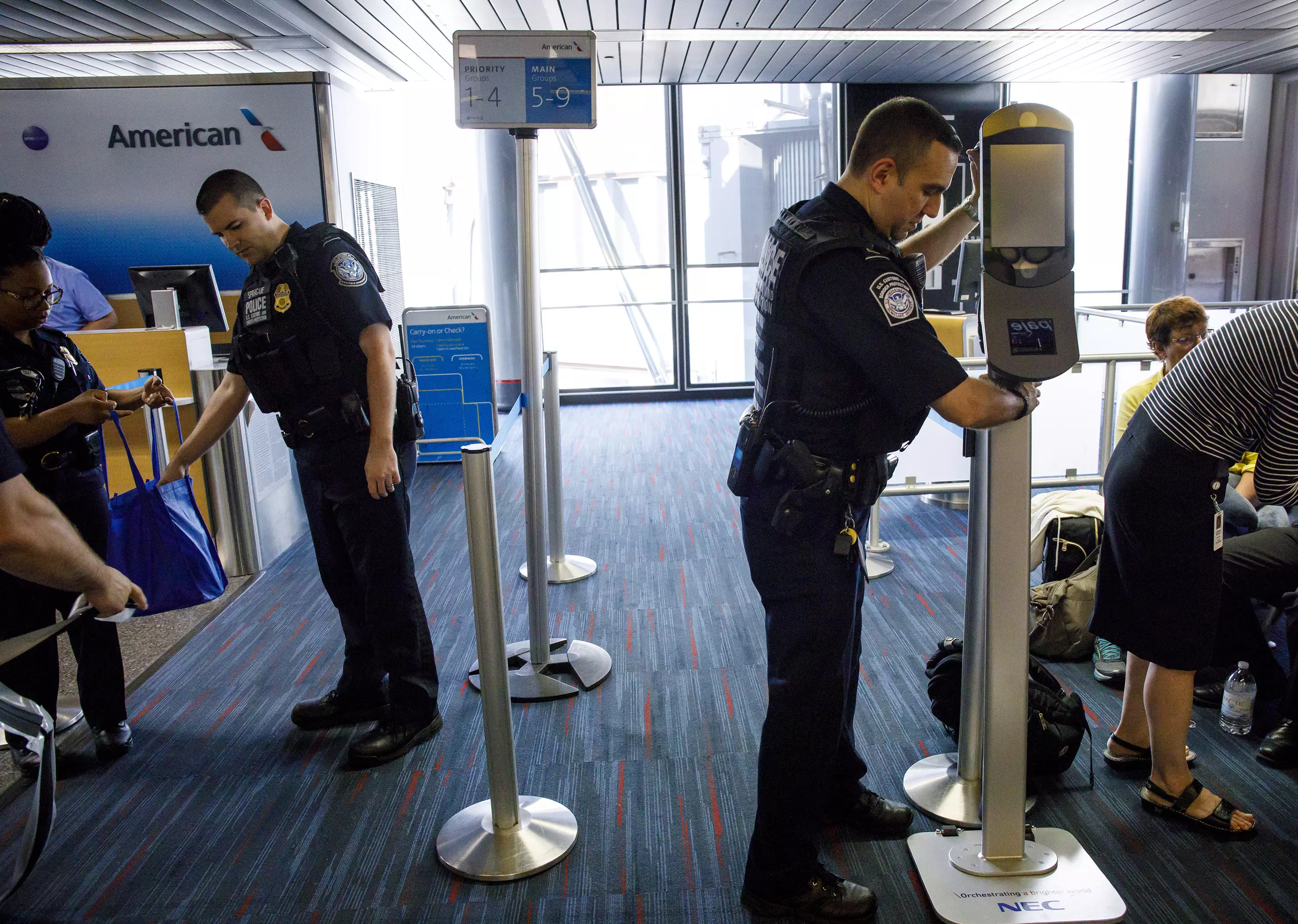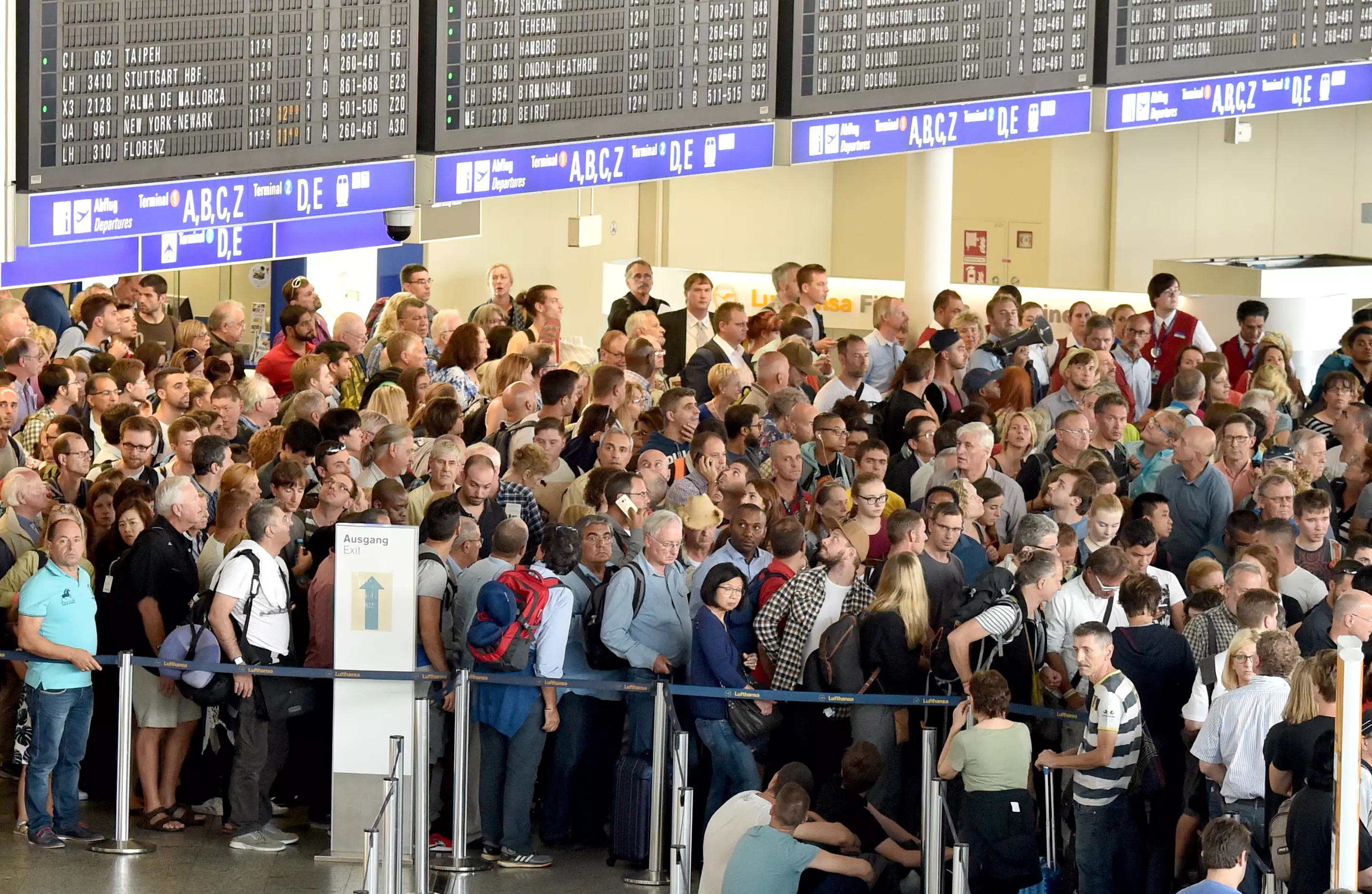
Flying can be a trying business at the best of times, and that can begin even before you leave the ground.
Airport security is notoriously tight and can often appear to be quite random in terms of who gets picked for further searches and why.
Well, one of the more cryptic aspects of the process has come to light, giving frequent flyers the ability to see just what is in store for them.
Advert
That is to say: what your ticket says about you. If your boarding pass includes the letters SSSS on it, then you might have a little session with the security services in the post.

Credit: PA
The letters SSSS are code for "Secondary Security Screening Selection" or "Secondary Security Screening Selectee" and are a method by which perceived risk individuals - and the emphasis is on the perception of risk, rather than actual risk - are pulled out for further interrogation.
Advert
If you get this note, then you can forget about printing off your boarding pass at home or at the airport. The chances are, you'll only be able to get it from the airport ticket desk and you're going to be asked a few more questions than usual.
While it might seem like randomness, there is a protocol in place that discerns who is to get the SSSS treatment and who isn't. The Transportation Security Agency (TSA) handbook that was leaked back in 2009 gives us some hints regarding why people find themselves pulled to one side.

Credit: PA
Advert
Some of them are quite obvious given what we know about how hijackers and terrorists operate: if you've bought your ticket in cash for example, or have a one-way ticket, or bought your ticket at the very last minute (or a combination of all three), you might well find yourself spending half an hour or so explaining yourself to security personnel.
Others are murkier: those who have recently arrived from a perceived 'high risk' location are more likely to get SSSS treatment, while those who have named similar to people on the 'No Fly' list might find themselves picked up more often.
In fact, the TSA actually have a protocol that allows you to check if you are incorrectly on a watch list due to having a similar name to a suspect, as people such as this are disproportionately likely to be frequently and unfairly targeted.
Of course, there is also the huge element of randomness to consider too: plenty of people get the SSSS for absolutely no reason at all.
Featured Image Credit: Gabriel Saldana